Beijing 2022 Olympics begin
27 min agoCan sports overcome the controversy of Beijing 2022?From CNN's Nectar Gan in BeijingThe ice rinks have been smoothed out, the brown mountain slopes draped with artificial snow. The Olympic flame is on its final journey to the heart of Beijing, ready to light up the night sky.Defying a raging pandemic and months of international controversy, the 2022 Winter Olympics will officially open as scheduled in the Chinese capital tonight.Sealed off from its host city by a labyrinth of high fences, thermal gates and facial-recognition cameras, this is an Olympics like no other.Politics, protests and Covid protocols have become an unavoidable part of the build-up to these Games, and if anything, events taking place outside the sporting arena during the next two weeks will receive as much attention as actions on the ice and snow.How China responds will be a major test for the country's leader Xi Jinping, who is gearing up for an unprecedented third term in power this fall."The world is turning its eyes to China, and China is ready," Xi said Thursday ahead of the opening ceremony.For China's ruling Communist Party, the Games will offer a moment of national triumph, as Beijing becomes the first city to host both the Summer and Winter Olympics. It is also the first major global event inside of China since the country shut its borders two years ago in the wake of the initial coronavirus outbreak.But among the Chinese public, enthusiasm for the Winter Games pales in comparison with 2008, when residents gathered in their thousands across Beijing to watch the Summer Olympics opening ceremony on large public screens, eager to be a part of history. This year, few viewing parties are taking place in a capital subdued by heavy-handed snap lockdowns and other pandemic restrictions."I think the Games are going to be declared a great success by the Communist Party — whether it's gonna be perceived as such by other nations is another issue," said Jean-Pierre Cabestan, a professor of political science at Hong Kong Baptist University.Read the full story:39 min agoRussia's Vladimir Putin arrives in Beijing for talks with Chinese President Xi JinpingFrom CNN’s Hannah RitchieRussian President Vladimir Putin has arrived in Beijing to begin talks with Chinese leader Xi Jinping ahead of the Winter Olympics opening ceremony, Chinese state-run media outlet CGTN reported Friday.The talks will be held in Beijing’s Diaoyutai State Guesthouse, a diplomatic complex in Beijing where state visits are held, according to Chinese state broadcaster CCTV.The two leaders will discuss bilateral trade and "relevant international topics," Putin said in a letter published in Chinese state media on Thursday. On the schedule: During the high-level talks, Putin will be joined by Foreign Minister Sergey Lavrov, Deputy Prime Minister Dmitry Chernyshenko, President’s Aide Yury Ushakov, Minister of Energy Nikolai Shulginov and Igor Sechin, head of state energy company Rosneft, Ushakov told reporters on Wednesday. Putin and Xi will also have a one-on-one lunch, Ushakov said. In the evening, Putin is expected to attend the opening ceremony of the Games. A critical meeting: Xi has not left China since the pandemic began, and this summit will be the first time he has met foreign counterparts face-to-face in more than 400 days. The Xi-Putin meeting comes at a pivotal moment for both sides, as the massing of Russian troops at the country's border with Ukraine fuels fears of an imminent invasion — an event that would be sure to overshadow China's Olympic moment.1 hr 11 min agoSport and politics should not mix, IOC chief saysFrom CNN’s Gawon Bae and Lizzy YeeIOC President Thomas Bach attends a news conference at the main media center in Beijing on Thursday. (Koji Ito/The Yomiuri Shimbun/AP)International Olympic Committee (IOC) President Thomas Bach said the mission of the Olympics is to "unify" and called on world leaders to not mix sport and politics, during his speech at the 139th IOC Session on Thursday. Speaking ahead of the Beijing Winter Olympics opening ceremony, Bach said the mission of the Games can only be accomplished “if the Olympics are politically neutral and do not become a tool to achieve political goals.”He noted that in January 2020 the IOC could already see “the dark clouds of the growing politicization of sport on the horizon.” Adding, “the boycott ghosts of the past were rearing their ugly heads again,” ahead of Beijing. “We stressed that the Olympic Games can only accomplish this mission, that we only can get all of humanity together in all our diversity, if the Games stand beyond all differences and political disputes,” he said. The United States announced a diplomatic boycott of the Beijing 2022 Winter Olympics in December, citing China’s “ongoing genocide and crimes against humanity in Xinjiang and other human rights abuses.”Several countries including Canada and Australia have joined the diplomatic boycott.1 hr 43 min agoBelgian skeleton r
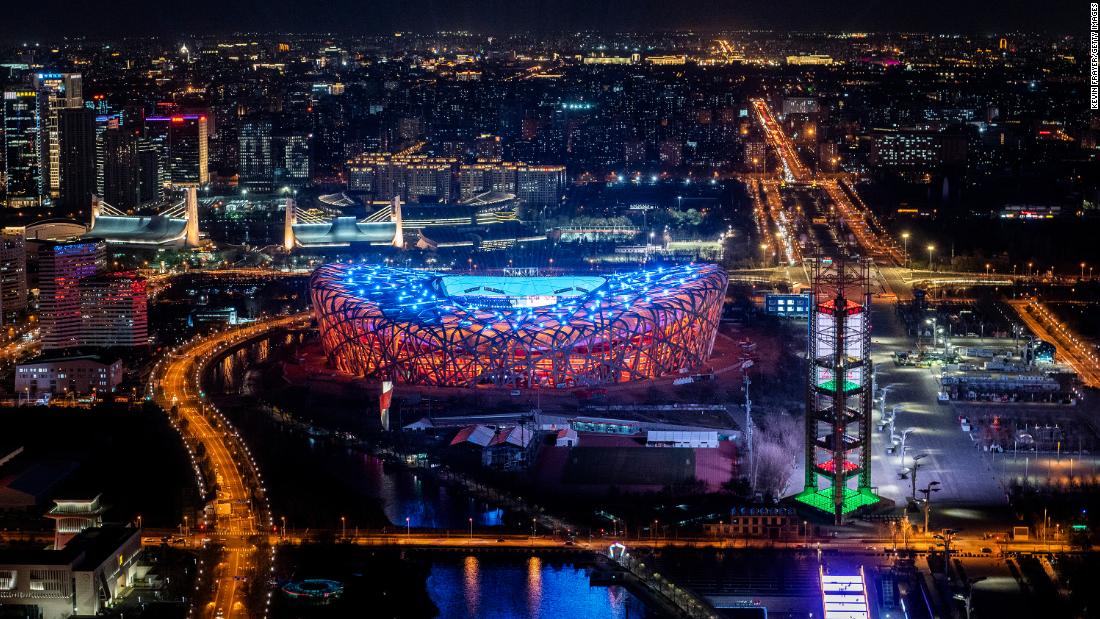
Can sports overcome the controversy of Beijing 2022?
From CNN's Nectar Gan in Beijing
The ice rinks have been smoothed out, the brown mountain slopes draped with artificial snow. The Olympic flame is on its final journey to the heart of Beijing, ready to light up the night sky.
Defying a raging pandemic and months of international controversy, the 2022 Winter Olympics will officially open as scheduled in the Chinese capital tonight.
Sealed off from its host city by a labyrinth of high fences, thermal gates and facial-recognition cameras, this is an Olympics like no other.
Politics, protests and Covid protocols have become an unavoidable part of the build-up to these Games, and if anything, events taking place outside the sporting arena during the next two weeks will receive as much attention as actions on the ice and snow.
How China responds will be a major test for the country's leader Xi Jinping, who is gearing up for an unprecedented third term in power this fall.
"The world is turning its eyes to China, and China is ready," Xi said Thursday ahead of the opening ceremony.
For China's ruling Communist Party, the Games will offer a moment of national triumph, as Beijing becomes the first city to host both the Summer and Winter Olympics. It is also the first major global event inside of China since the country shut its borders two years ago in the wake of the initial coronavirus outbreak.
But among the Chinese public, enthusiasm for the Winter Games pales in comparison with 2008, when residents gathered in their thousands across Beijing to watch the Summer Olympics opening ceremony on large public screens, eager to be a part of history. This year, few viewing parties are taking place in a capital subdued by heavy-handed snap lockdowns and other pandemic restrictions.
"I think the Games are going to be declared a great success by the Communist Party — whether it's gonna be perceived as such by other nations is another issue," said Jean-Pierre Cabestan, a professor of political science at Hong Kong Baptist University.
Read the full story:
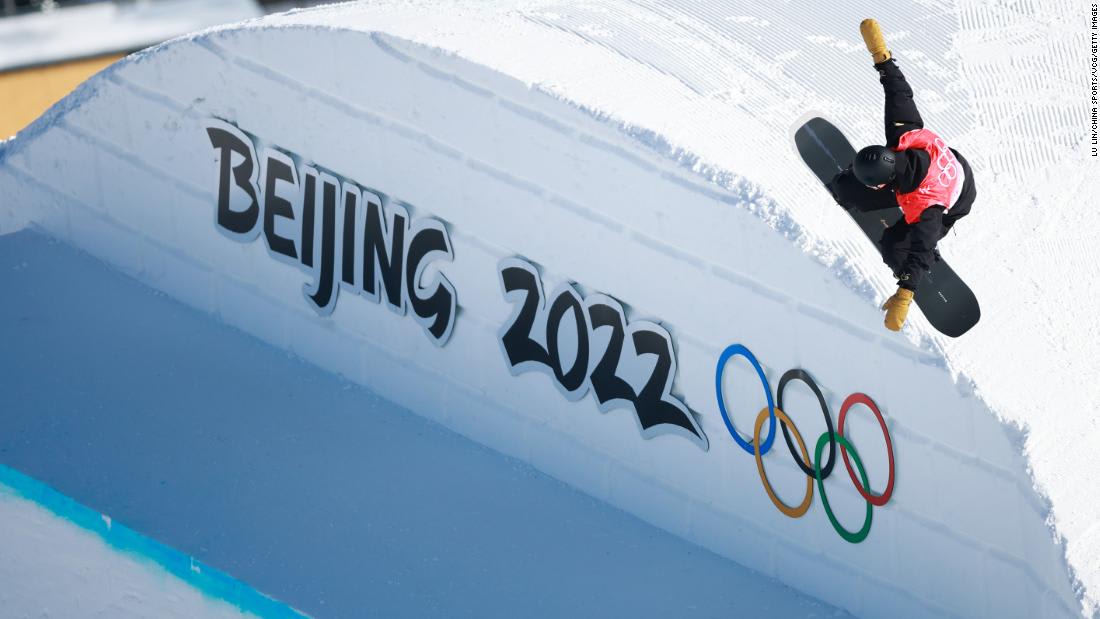
Russia's Vladimir Putin arrives in Beijing for talks with Chinese President Xi Jinping
From CNN’s Hannah Ritchie
Russian President Vladimir Putin has arrived in Beijing to begin talks with Chinese leader Xi Jinping ahead of the Winter Olympics opening ceremony, Chinese state-run media outlet CGTN reported Friday.
The talks will be held in Beijing’s Diaoyutai State Guesthouse, a diplomatic complex in Beijing where state visits are held, according to Chinese state broadcaster CCTV.
The two leaders will discuss bilateral trade and "relevant international topics," Putin said in a letter published in Chinese state media on Thursday.
On the schedule: During the high-level talks, Putin will be joined by Foreign Minister Sergey Lavrov, Deputy Prime Minister Dmitry Chernyshenko, President’s Aide Yury Ushakov, Minister of Energy Nikolai Shulginov and Igor Sechin, head of state energy company Rosneft, Ushakov told reporters on Wednesday.
Putin and Xi will also have a one-on-one lunch, Ushakov said. In the evening, Putin is expected to attend the opening ceremony of the Games.
A critical meeting: Xi has not left China since the pandemic began, and this summit will be the first time he has met foreign counterparts face-to-face in more than 400 days.
The Xi-Putin meeting comes at a pivotal moment for both sides, as the massing of Russian troops at the country's border with Ukraine fuels fears of an imminent invasion — an event that would be sure to overshadow China's Olympic moment.
Sport and politics should not mix, IOC chief says
From CNN’s Gawon Bae and Lizzy Yee
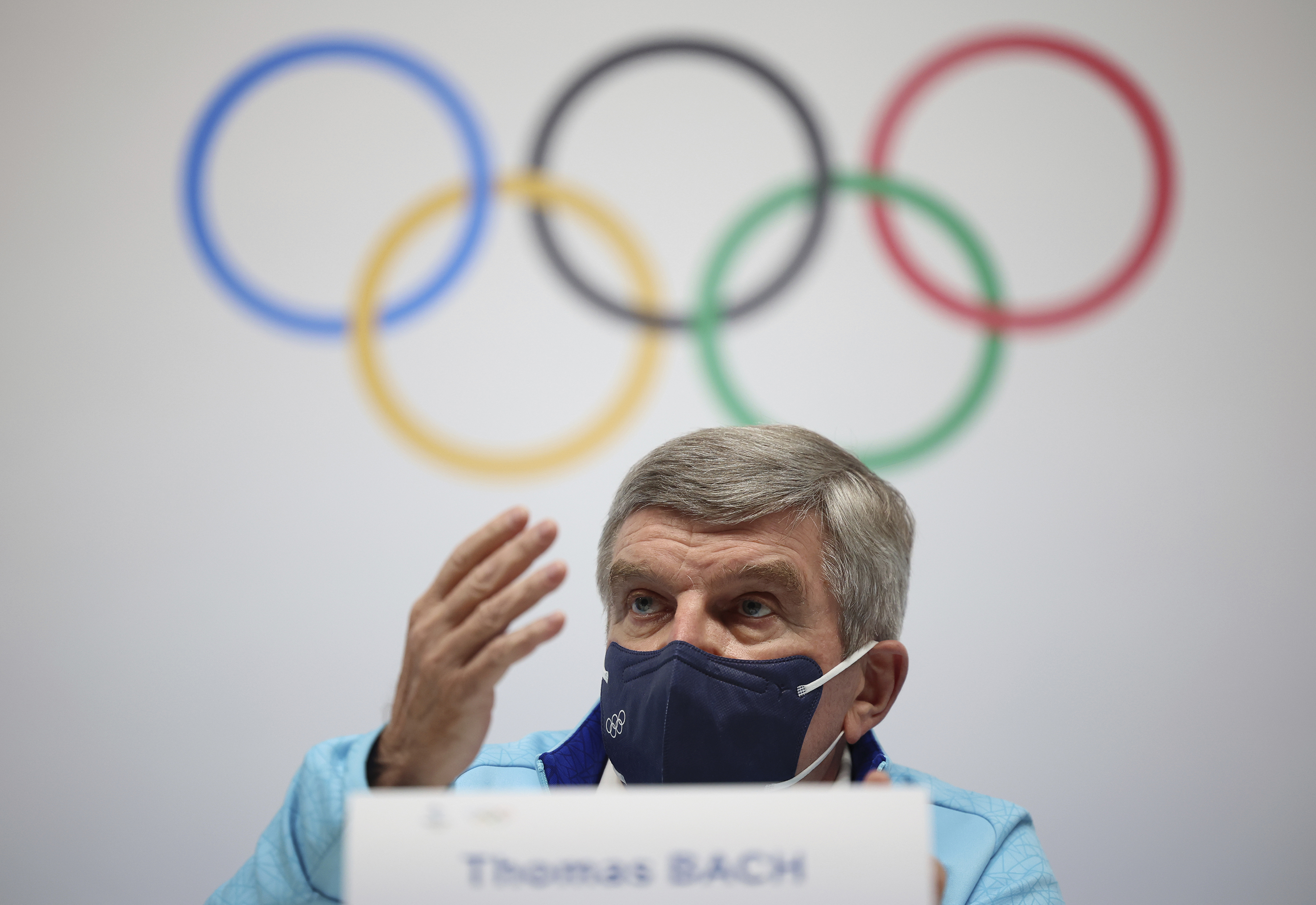
International Olympic Committee (IOC) President Thomas Bach said the mission of the Olympics is to "unify" and called on world leaders to not mix sport and politics, during his speech at the 139th IOC Session on Thursday.
Speaking ahead of the Beijing Winter Olympics opening ceremony, Bach said the mission of the Games can only be accomplished “if the Olympics are politically neutral and do not become a tool to achieve political goals.”
He noted that in January 2020 the IOC could already see “the dark clouds of the growing politicization of sport on the horizon.” Adding, “the boycott ghosts of the past were rearing their ugly heads again,” ahead of Beijing.
“We stressed that the Olympic Games can only accomplish this mission, that we only can get all of humanity together in all our diversity, if the Games stand beyond all differences and political disputes,” he said.
The United States announced a diplomatic boycott of the Beijing 2022 Winter Olympics in December, citing China’s “ongoing genocide and crimes against humanity in Xinjiang and other human rights abuses.”
Several countries including Canada and Australia have joined the diplomatic boycott.
Belgian skeleton racer Kim Meylemans allowed to leave Beijing Covid isolation after emotional plea
From CNN's Hannah Ritchie and Rhea Mogul
A Belgian Olympian has been released from isolation in Beijing, following an emotional plea for help about her treatment ahead of the Winter Games.
Kim Meylemans was forced into isolation after she had tested positive for Covid-19 upon arrival in the Chinese capital.
She thought she could leave the facility after three days of isolation and two consecutive negative tests, she said on Instagram Wednesday.
But instead of returning to the Olympic Village, the 25-year-old skeleton racer was taken to a separate government facility, she added.
Fighting through tears, she said she may never get to enter the Beijing Winter Olympics Village.
"We are not even sure I will ever be allowed... into the village," Meylemans said. "This is very hard for me. I ask you all to give me some time to consider my next steps because I am not sure I can handle 14 more days and the Olympic competition while being in this isolation."
Hours after her emotional plea for help, the athlete was released from the facility late Wednesday following an intervention from the International Olympic Committee (IOC), she said.
"I am now in a wing that is just isolation, but at least I am back in the village," Meylemans said on Instagram. "I feel safe and I'll be able to train a little better here."
Beijing's Olympic bubble: Meylemans' Winter Olympics journey is an example of some of the stringent measures taken by China, one of the few places continuing to adhere to a zero-Covid policy.
Meylemans had tested negative a dozen times prior to her departure for the Games and was shocked by her positive result in Beijing, she said.
To limit the spread of infection, Beijing is holding the entire Winter Games inside what authorities have called a "closed loop system" — a bubble completely cut off from the rest of the city and its wider population.
Inside the bubble, anyone who tests positive will be immediately removed from the Games. Those who are symptomatic will be sent to a designated hospital for treatment, while asymptomatic cases will be taken to an isolation facility. They won't be allowed to return to the bubble until all symptoms disappear and they test negative twice in a row.
Read more:
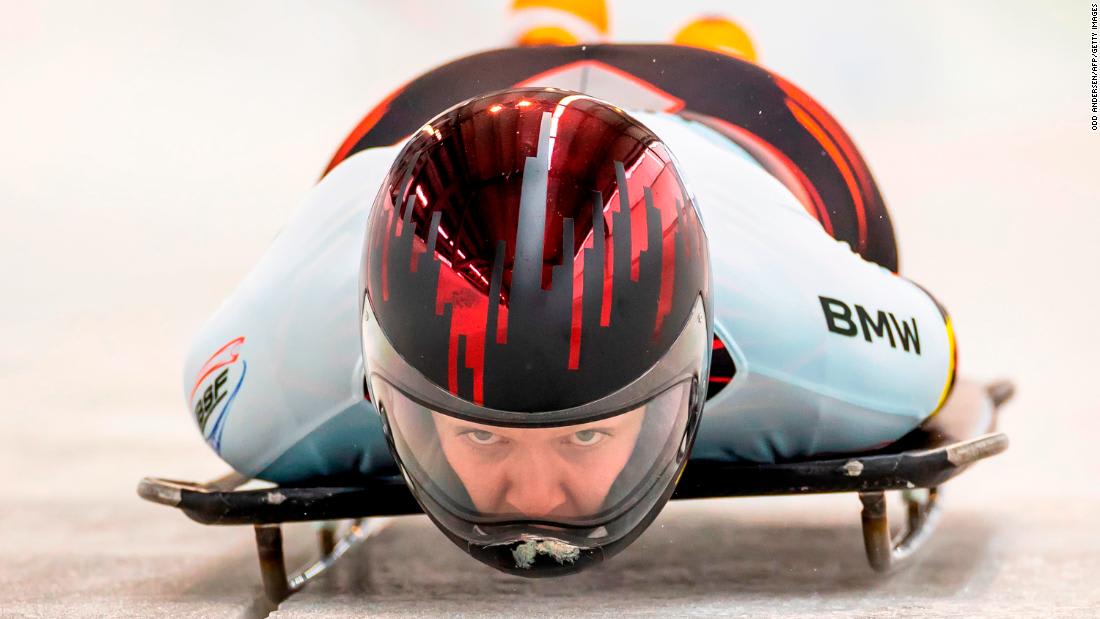
India launches last-minute diplomatic boycott of Beijing Olympics over Chinese soldier
From CNN's Simone McCarthy and Rhea Mogul
India on Thursday announced a diplomatic boycott of Beijing's Winter Olympics after a commander involved in 2020 border clashes between the two countries appeared as an Olympic torchbearer in the customary torch relay leading up to the Games.
The last-minute boycott, which will see India's top envoy in Beijing sit out Friday's opening ceremony, adds the world's most populous democracy to a list of Western nations who have launched their own diplomatic no-shows, citing China's human rights record — setting the tone for a controversial Olympic Games.
"It is indeed regrettable that the Chinese side has chosen to politicize an event like the Olympics," Arindam Bagchi, a spokesperson for India's Ministry of External Affairs, said in a televised speech on Thursday, where he announced the top diplomat at the Indian Embassy in Beijing will not be attending the opening or the closing ceremonies.
Following the official move, India's public broadcaster Doordarshan also announced it will not telecast the opening and closing ceremonies live. The country has one athlete competing this year, alpine skier Arif Khan.
The 2020 clashes: The decisions were sparked after images showed People's Liberation Army commander Qi Fabao honored as one of the some 1,200 people to bear the Olympic torch as it moves across the Olympic competition zones in the lead-up to the lighting of the Olympic cauldron Friday evening.
Qi has been hailed a hero in China for his role fighting in the deadly 2020 India-China skirmish at a disputed border in the Himalayan region that left at least 20 Indian soldiers dead. China has said the People's Liberation Army lost four soldiers.
The skirmish saw soldiers on both sides battling with sticks, stones and nail-studded bamboo poles in what was the deadliest border clash between the two nuclear-armed neighbors in more than 40 years. Both sides have accused the other of overstepping the de facto border, the Line of Actual Control (LAC) that runs along the western sector of the Galwan Valley.
Read more:
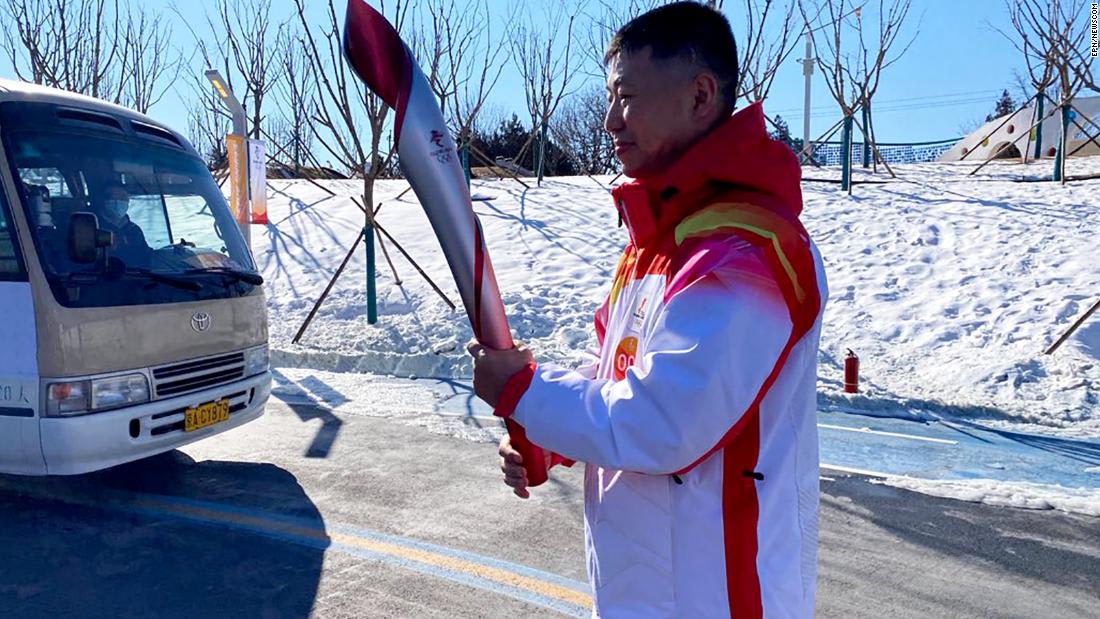
The Beijing 2022 Olympics will officially open today. Here's what to know
Friday is officially the first day of the Beijing 2022 Winter Olympics and athletes have started to pour in from around the world.
CNN will be covering events in the Chinese capital, both inside and outside the Olympic bubble.
Here's what to know ahead of the opening ceremony:
- This will be the last of three consecutive Olympics held in East Asia — after Pyeongchang 2018 and Tokyo 2020. Beijing will become the first city to have hosted both the Winter and Summer Olympics.
- For the second Olympics running, a raft of Covid-19 countermeasures have dominated the build-up to the Games, which will again take place in a Covid-safe "bubble," known as the "closed loop system."
- Fully vaccinated participants will be able to enter the closed loop without quarantining, while those who aren't vaccinated will need to quarantine for 21 days upon arrival in Beijing. Medical exemptions, considered on a case-by-case basis, may be granted to those who are unvaccinated. Some countries, such as the United States and Canada, have mandated that all team members be vaccinated.
- Aside from the pandemic, the human rights situation in China has drawn greater scrutiny, most notably diplomatic boycotts due to alleged human rights abuses in the far western region of Xinjiang.
- Nearly 3,000 athletes will compete in 15 disciplines across 109 events. Some events, like the curling and luge have already begun.
- The opening ceremony will take place at the Beijing National Stadium at 8 p.m. local time (7 a.m. ET).
Beijing reports 21 new Covid-19 cases related to the Winter Olympics
From CNN's Gawon Bae
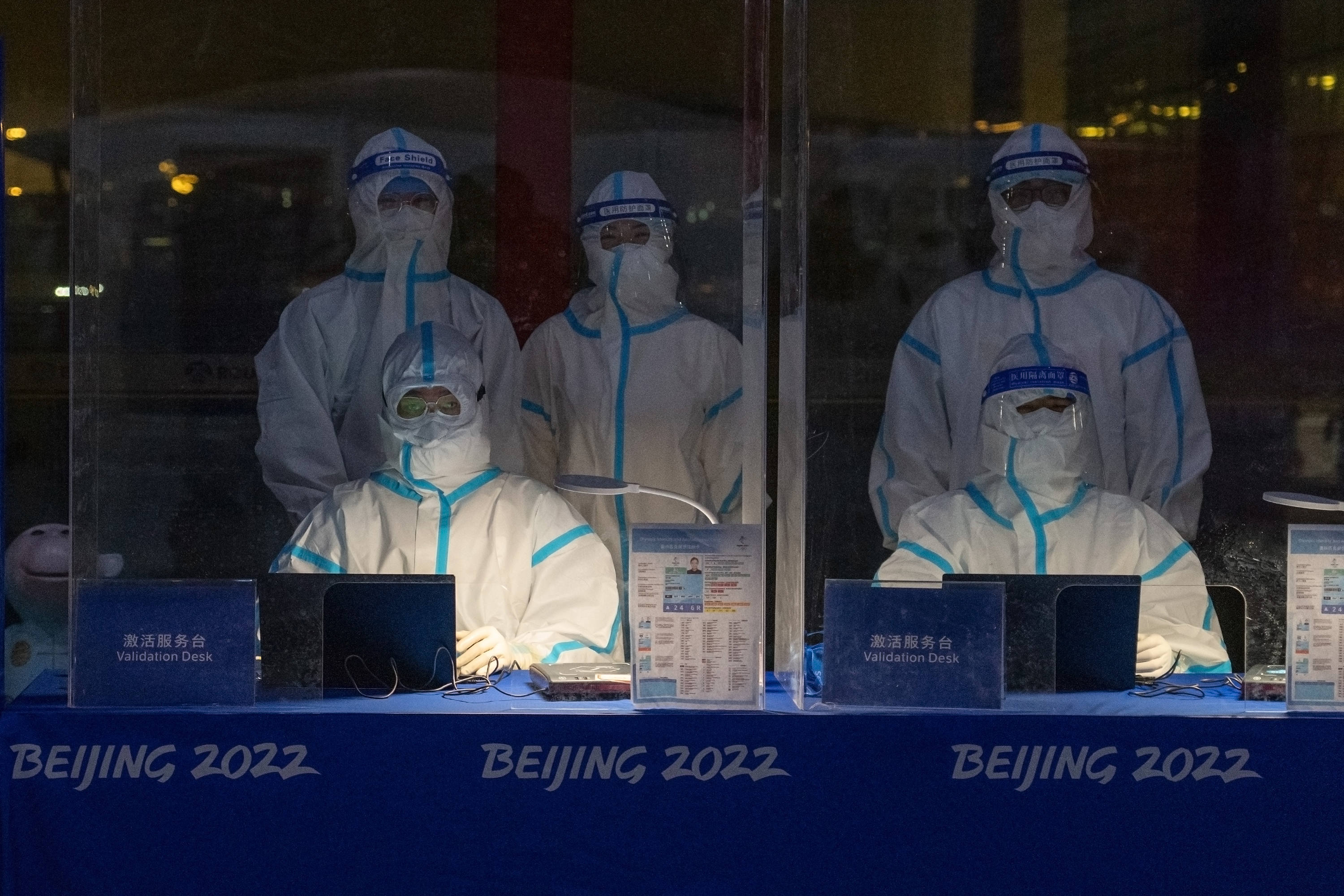
The Beijing Olympic Committee identified 21 new Covid-19 cases among Games-related personnel on Thursday, it said in a statement ahead of Friday's opening ceremony.
Since the “closed loop” system officially began on Jan. 23, a total of 308 Olympic-related Covid cases have been reported, 111 of which involve athletes or team officials.
Of the 21 new cases, 14 were detected among new airport arrivals and seven from those already inside the closed loop, which separates Olympic athletes, stakeholders, and staff from the Beijing public.
Nine of the 21 cases involved athletes or team officials, two of which were already inside the closed loop.
Since Jan. 23, nearly 12,000 people have arrived in Beijing and more than 670,000 Covid tests have been administered, the statement added.
150,000 spectators will be invited to attend the Winter Olympics
From CNN's Gawon Bae
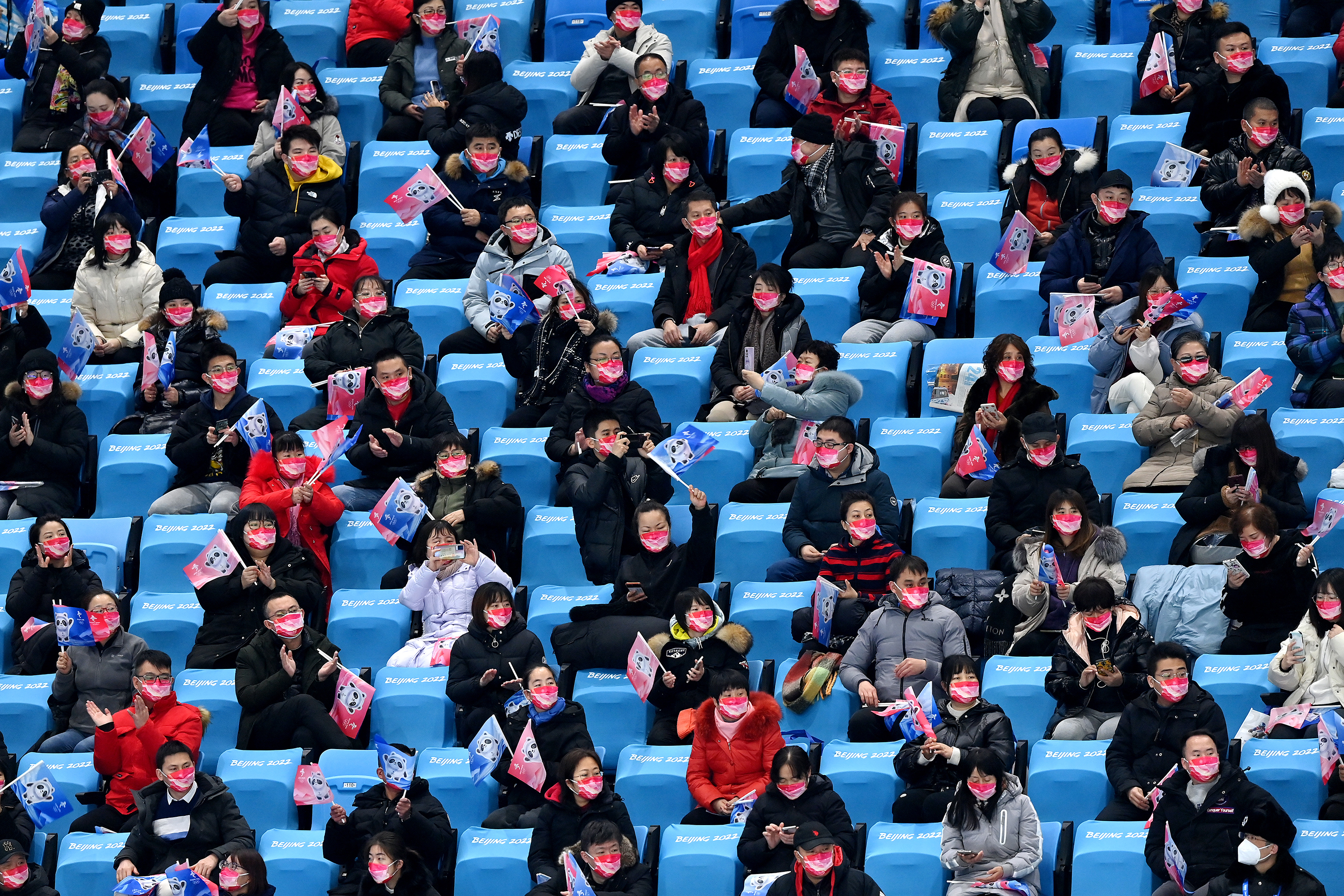
Some 150,000 spectators will be invited to attend the 2022 Winter Games, vice president of the Beijing Organizing Committee Yang Shu'an said on Thursday.
Shu'an said Olympic venues will be split evenly between spectators from inside the "closed loop" system, which separates Games-related personnel from the public, and those living outside of it.
The 150,000 spectators from outside the closed loop will include international people residing in mainland China, diplomatic personnel, marketing partners, winter sports enthusiasts, residents, and local students, he said.
Spectators inside the closed loop will consist of members of the Olympic family, national Olympic committee delegations, athletes, media representatives and broadcasters, Shu'an added.
On Jan. 17, the IOC said tickets for the Games would not go on sale for international visitors or the general public, citing Covid-19 concerns. Instead, it decided groups of spectators would need to be invited to fill the stands.
Freedom of speech is restricted in 3 areas during the Olympics, IOC says
From CNN's Mohammed Tawfeeq
Freedom of speech is restricted in three areas during the Winter Olympics in Beijing, but athletes are free to speak during news conferences, and via social media as long as they don't insult other people or violate their rights, International Olympic Committee (IOC) officials said Thursday.
IOC officials said these rules apply to all Olympics, wherever they are held.
"The Olympic Games are governed by the IOC rules, and this is in the host city contract and in the Olympic Charter, and we have no reason to believe that this would not be respected," IOC president Thomas Bach told reporters in a news conference in Beijing on Thursday.
When asked whether athletes should be fearful of their well-being and safety if they say things that might be objectionable to the Chinese government, Bach said, "Whenever an athlete is making a statement that he does not insult other people, that he's not violating the rights of other people," then they can express their opinion freely.
According to IOC Olympic Games executive director Christophe Dubi, athletes cannot enjoy the freedom of speech in:
- The field of play.
- The opening and closing ceremonies.
- The medal ceremonies.
Those are the "three areas where the athletes themselves have decided that there would be no demonstration," Dubi told reporters.
"We've worked with the organizing committee already in Tokyo and further explain this rule here in the context of Beijing. But again, this was a rule established by the athletes for the athletes to respect the dignity of the moment and the place," Dubi added.

 Landwebs
Landwebs 







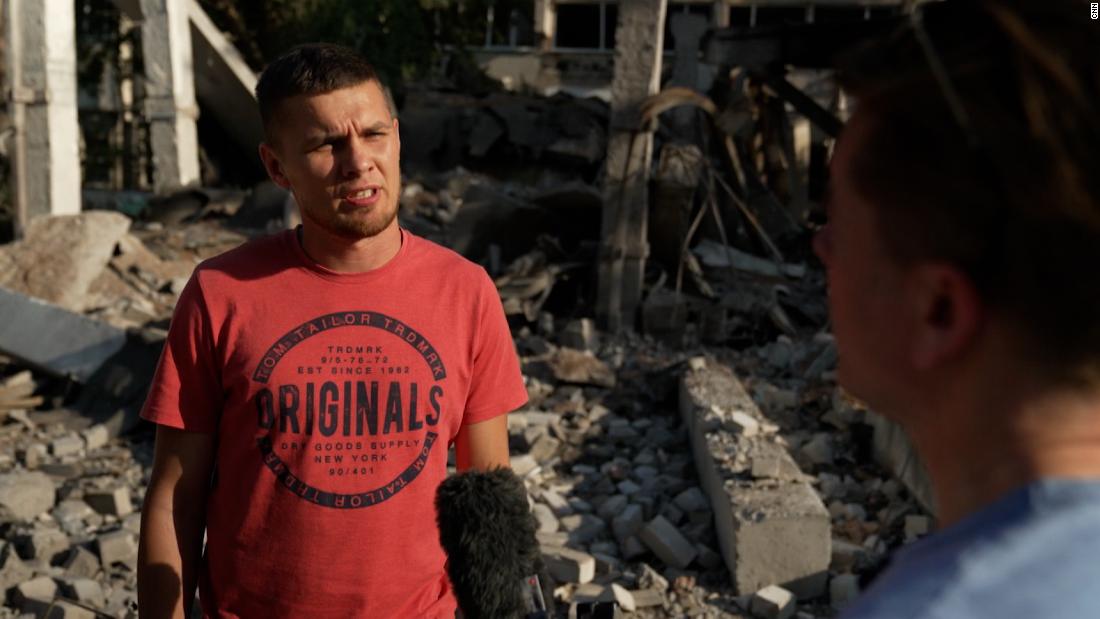
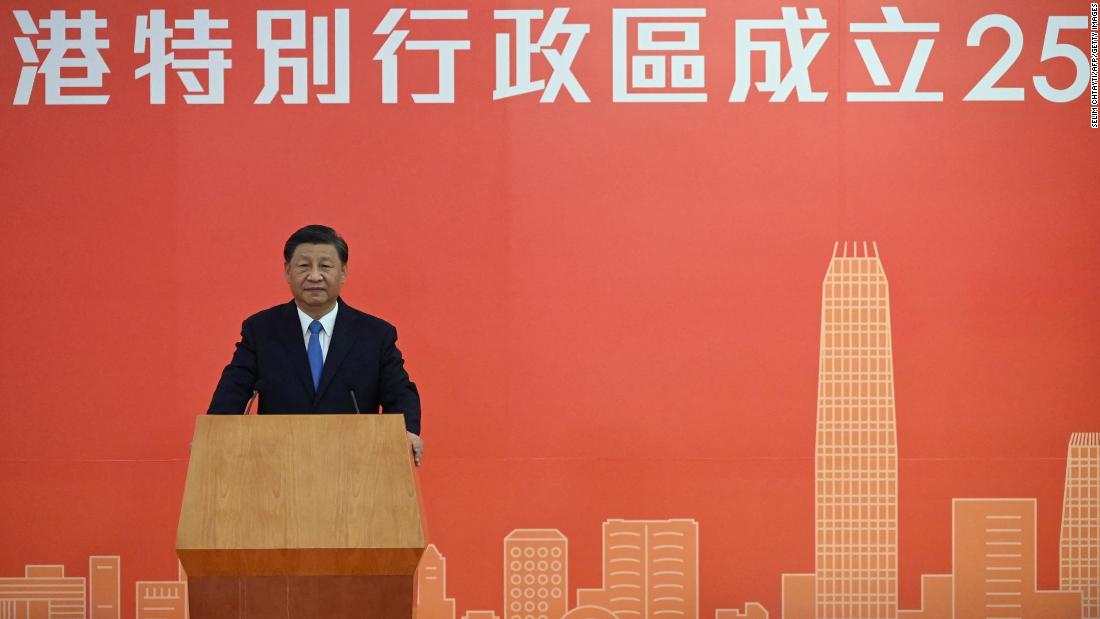
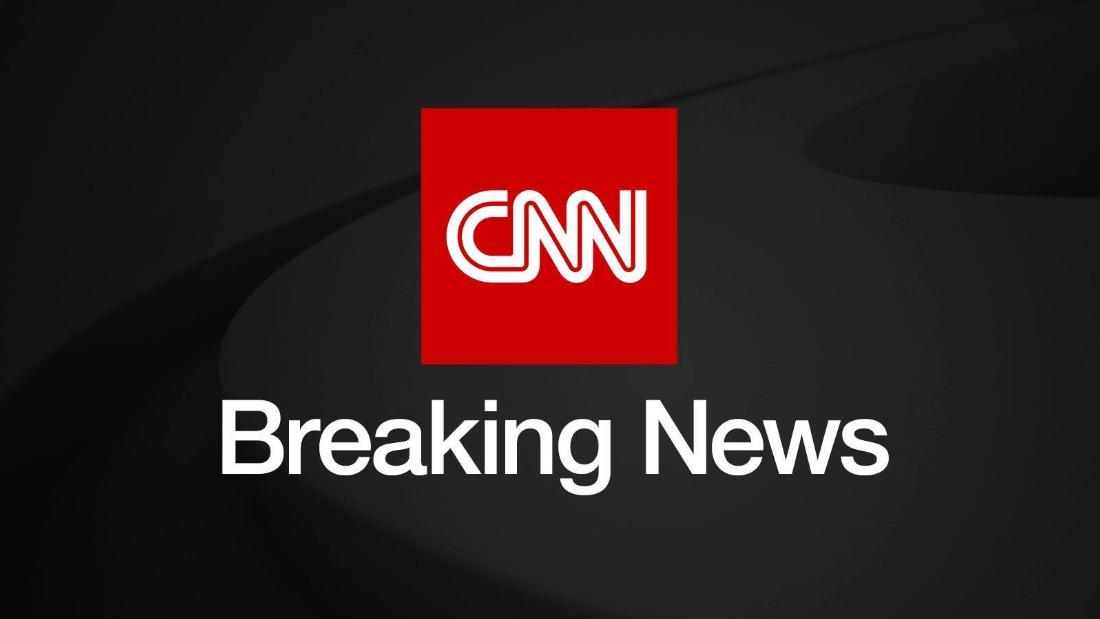
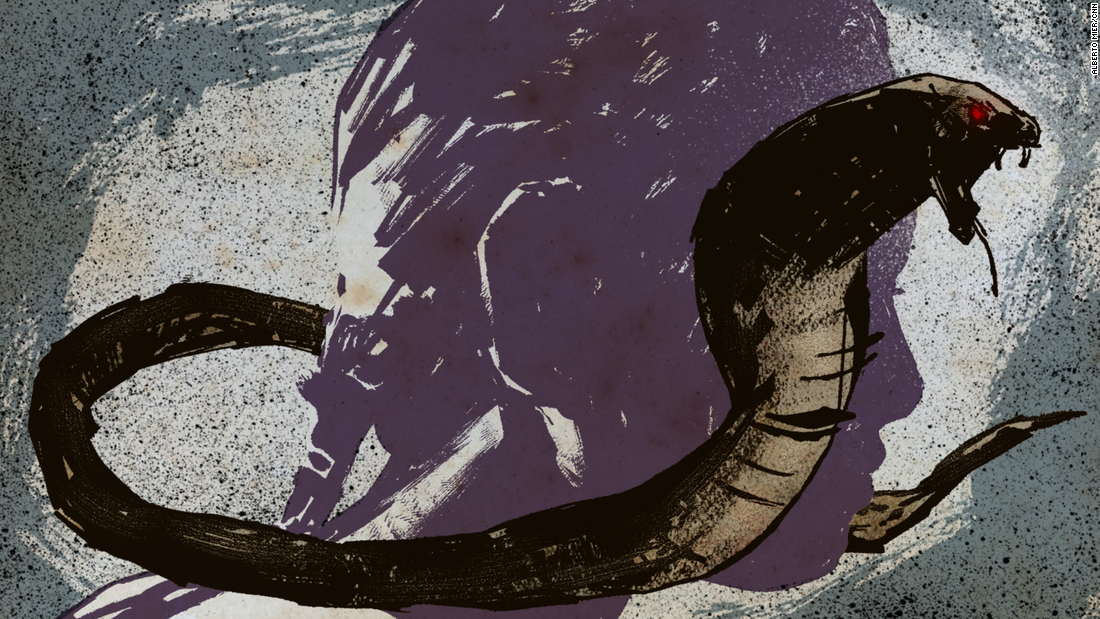
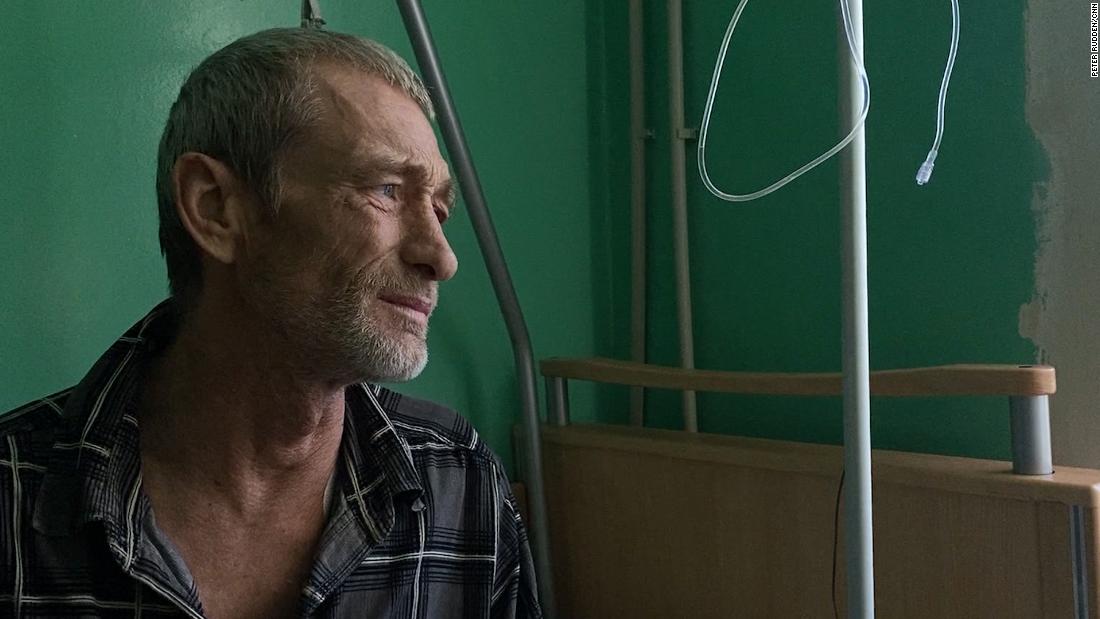
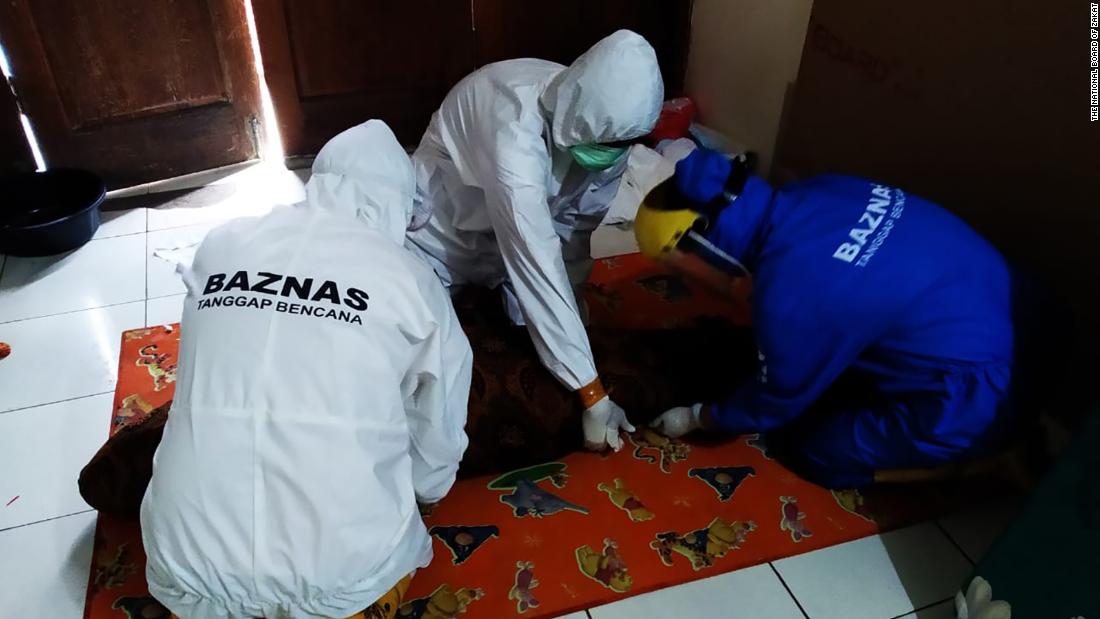

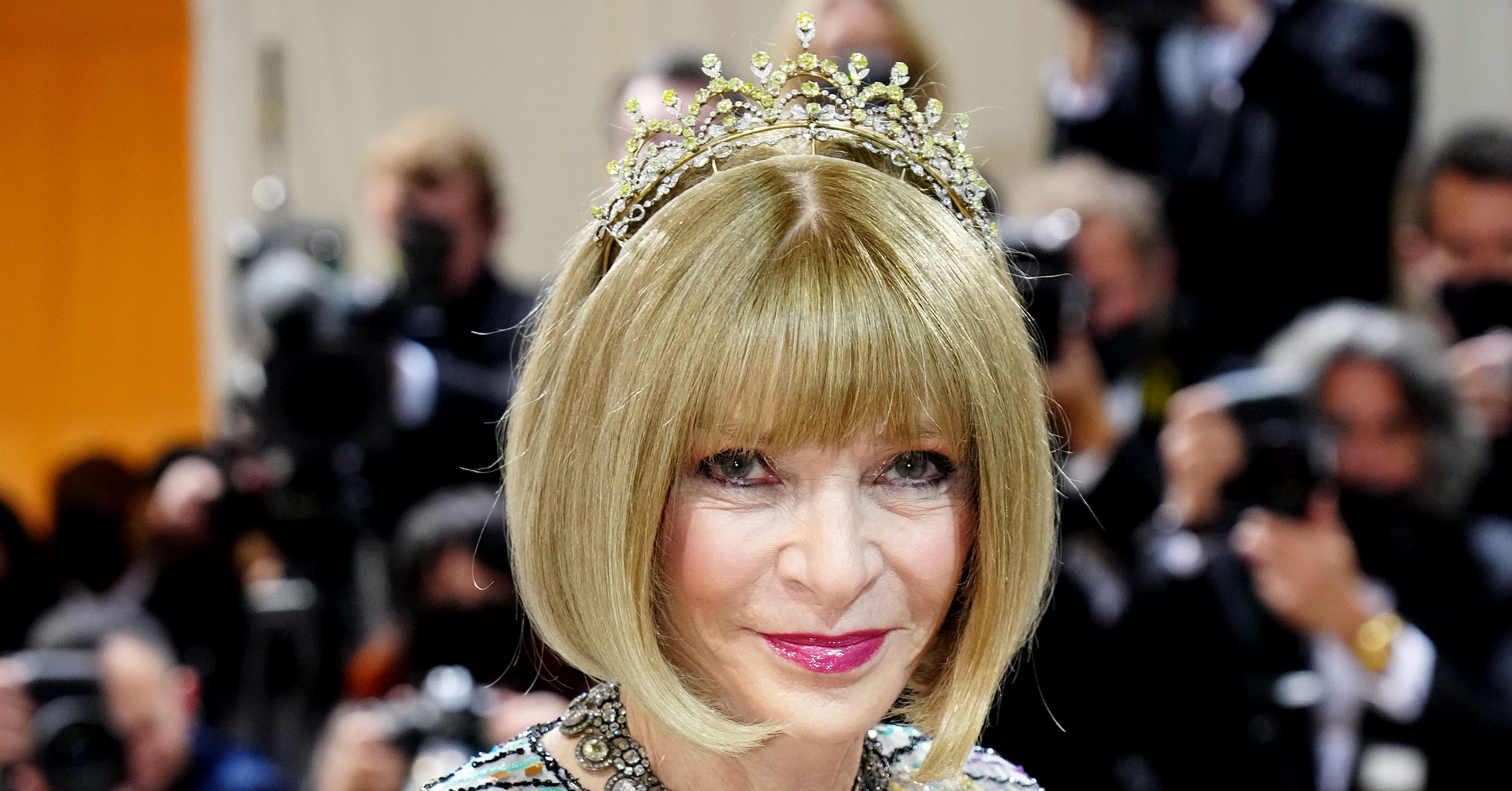

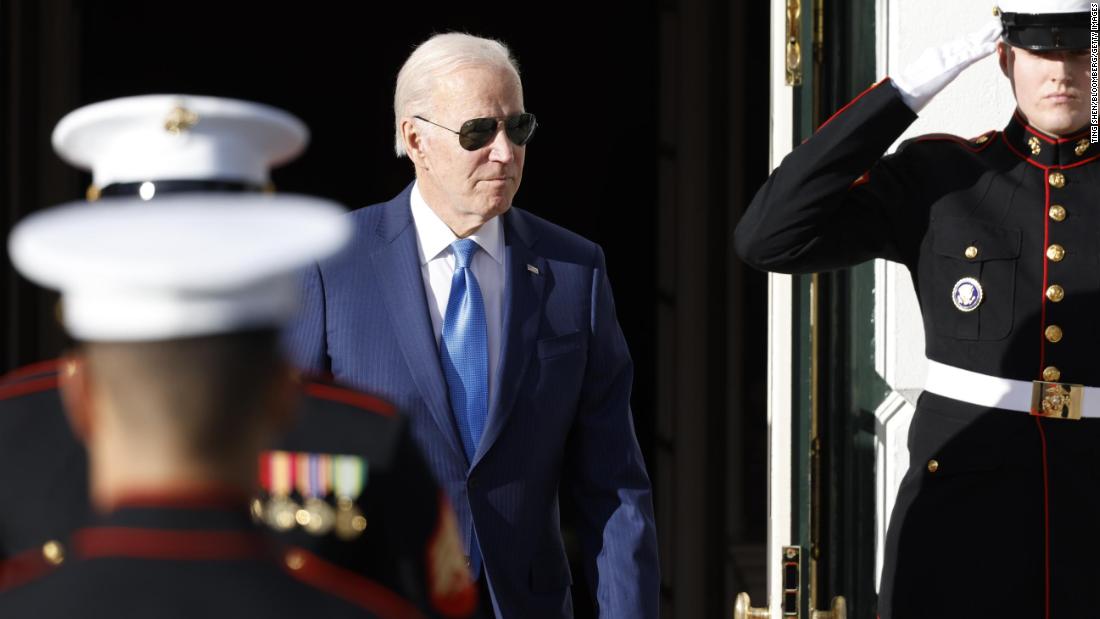






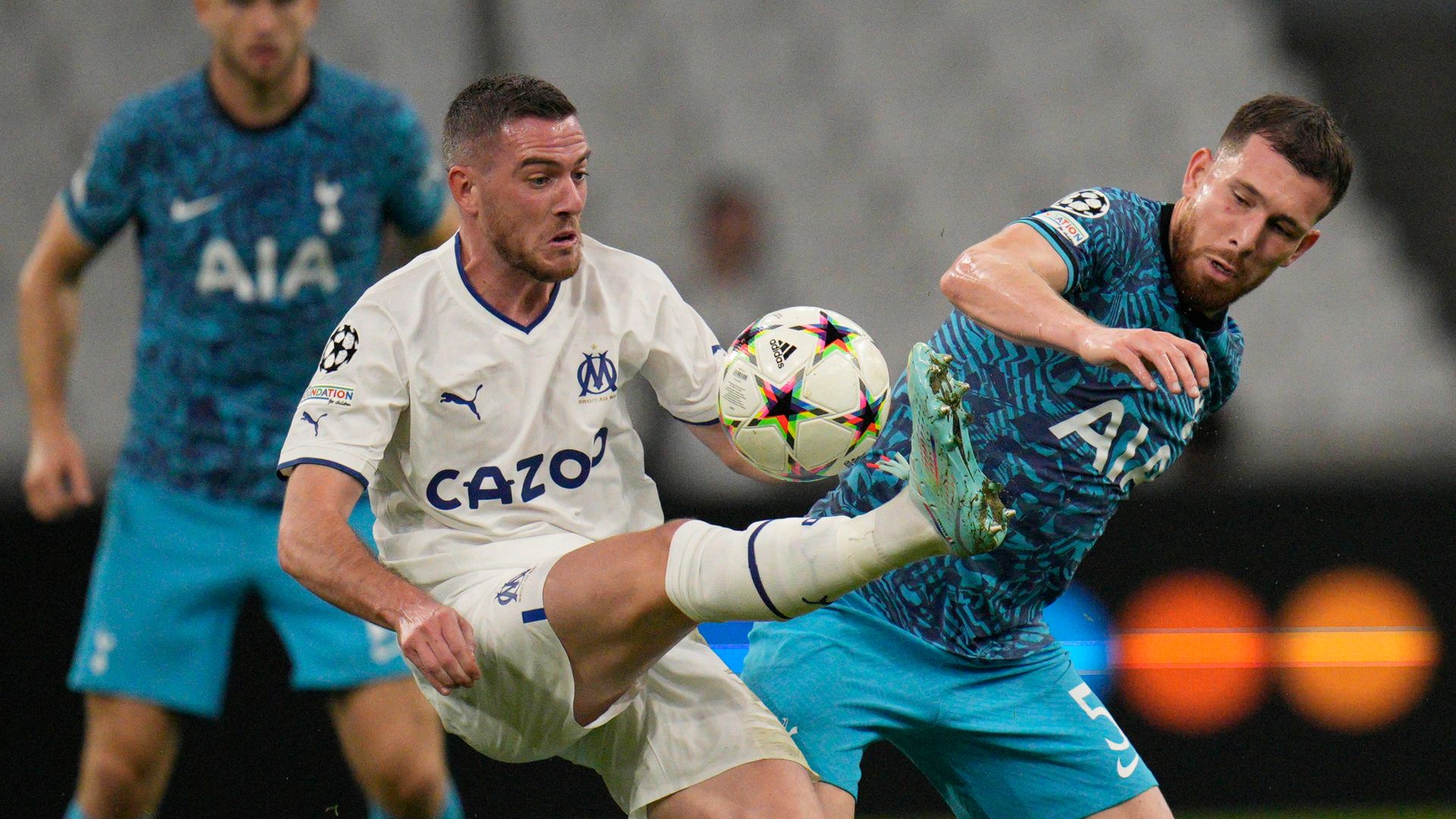
/cdn.vox-cdn.com/uploads/chorus_asset/file/24430706/elon_musk_twitter_for_you.png)